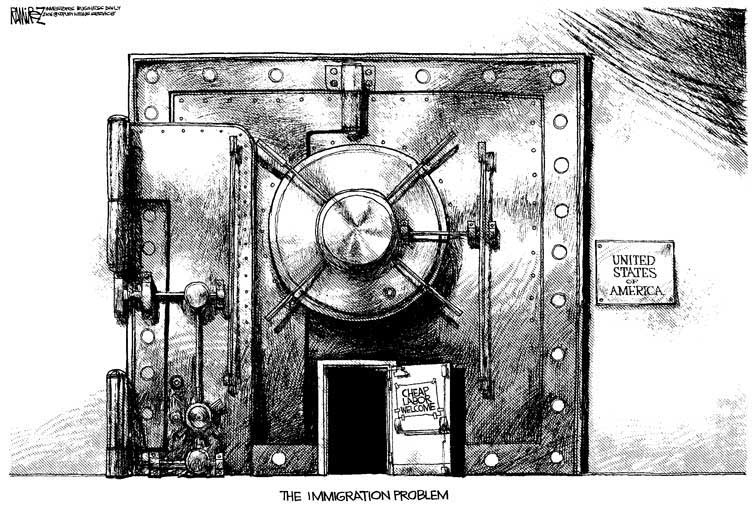ebrown writes
Quote:As far as your claim that a immigrant friendly policy has "bad results". You offered the 1986 amesty as an example.
The 1986 gave people a chance to become Americans. Another person I use to go to church with is a social worker. She is one of the people I respect the most, compassionate and wise and always doing extra to help people in a difficult job.
She came from Haiti and was granted her citizenship in the 1986 amnesty and worked hard to get an education so she could live a productive life.
The result of the 1986 amnesty is that people were able to build lives here as citizens.
Weren't you one that said this wrecked the economy then? Or was that somebody else.
I probably worded it badly, but I intended to just be repeating what others were saying about the 1986 amnestry.
Sure for those who have become good citizens, it was a good thing. I know a couple of those folks too and had one working for me for a time. He is truly a uniquely marvelous individual and now has his own business. We stay in touch. (He had been declared legal when I hired him.)
What is said to be a downside is that it did nothing at all to stem the tide of illegals coming into the country. It is said that every time we do one of these things, it is like putting a flashing neon sign on the border that there are no consequences for coming to the United States illegally and you have a really good chance to be allowed to stay here legally if you do. If you tough it out, sooner or later the authorities cave in and accept everybody who is here and we start all over again.
So the question is: how many of the world's poor can we take without breaking our own social services network and destroying our own economy? What should the policy be? The current Senate Judiciary Committee bill that just passed didn't really address that and is using some very arbitrary numbers. It looks to me to be another bandaid instead of a fix for the problem. Maybe there is no fix.
